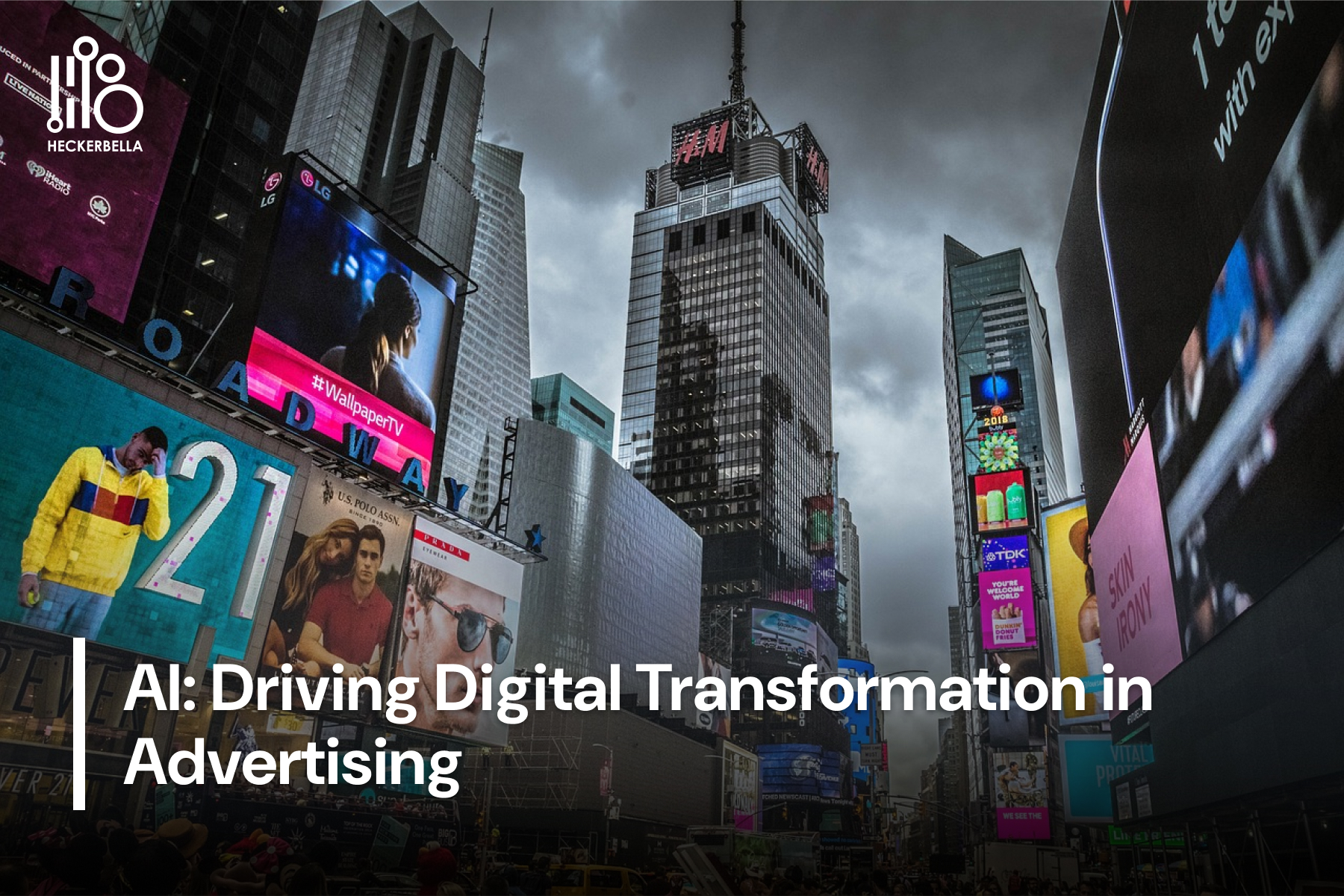
In 2024, AI advertising has emerged as a pivotal force in the marketing landscape. Businesses are increasingly turning to AI to enhance their targeting, personalize campaigns, and optimize ad spend. This article delves into the rising trend of AI advertising, its impact on businesses, and why it’s essential for staying competitive in today’s dynamic market.
According to eMarketer, AI-powered advertising is set to account for 20% of total digital ad spending by 2024, a significant increase from 10% in 2022. This surge is fueled by AI’s ability to improve targeting, personalization, and optimization.
AI algorithms analyze vast amounts of data to identify patterns and preferences, enabling advertisers to deliver highly relevant and targeted ads. Additionally, AI-driven voice assistants and chatbots are creating more engaging and interactive advertising experiences.
Some benefits of AI advertising in business growth includes;
- Increased ROI: By delivering more relevant and targeted ads, AI can help businesses achieve a higher return on investment (ROI).
- Improved Customer Engagement: Personalized ads can lead to increased customer engagement and loyalty.
- Cost Savings: AI automation can streamline ad management processes, reducing manual effort and costs.
- Competitive Advantage: Businesses that embrace AI advertising can gain a competitive edge by reaching their target audience more effectively.
Key Trends in AI advertising includes:
- Hyper-Personalization: AI algorithms are becoming increasingly sophisticated at delivering highly personalized ads based on individual preferences and behaviors.
- Voice-Enabled Advertising: The rise of voice assistants is opening up new opportunities for brands to engage with consumers through voice-activated ads.
- Generative AI: AI-powered tools are being used to create more creative and engaging ad content, including images, videos, and copy.
Challenges and Considerations
While AI offers significant advantages, it also presents challenges that businesses must carefully navigate. These challenges include:
- Data Privacy Concerns: The use of AI in advertising often involves the collection and processing of large amounts of personal data. Businesses must ensure compliance with data privacy regulations and implement robust security measures to protect sensitive information.
- Ethical Implications: AI algorithms can inadvertently perpetuate biases present in the data they are trained on. This can lead to discriminatory or unfair advertising practices. It is crucial to address ethical concerns and ensure that AI is used responsibly.
- Human Oversight: While AI can automate many tasks, human oversight is still necessary to ensure that campaigns align with business goals, ethical standards, and legal requirements.
To mitigate these risks, businesses should:
- Implement strong data privacy and security measures: This includes conducting regular audits, encrypting data, and obtaining necessary consents.
- Develop ethical guidelines: Establish clear guidelines for the use of AI in advertising and ensure that employees are trained to adhere to them.
- Maintain human oversight: Regularly review and evaluate AI-driven campaigns to ensure they are aligned with business objectives and ethical standards.
Case Study: Under Armour’s Rush Campaign
Under Armour’s Rush campaign stands out as a prime example of how AI can be leveraged to create highly effective advertisements. This sports apparel company, renowned for its innovative marketing strategies, successfully combined traditional advertising techniques with the power of AI to deliver a compelling and impactful campaign.

Central to the campaign was the promotion of Under Armour’s Rush line of performance gear. By harnessing the capabilities of AI, Under Armour was able to analyze consumer data and personalize messaging, ensuring that targeted ads reached the right audience. This personalized approach highlighted the unique selling points of Rush products to consumers based on their past purchases and online behavior.
The AI-enabled personalized marketing techniques employed in this campaign significantly enhanced customer touchpoints, leading to increased click-through rates and conversions. This success story demonstrates the transformative potential of advanced AI advertising in driving impactful promotions and delivering superior marketing campaigns.
Another example of AI advertising is Spotify’s personalized playlists. Spotify’s personalized playlist campaign stands as a testament to the power of AI in enhancing user experience. The music streaming giant, renowned for its commitment to personalized experiences, seamlessly integrated AI into its advertising strategies.

By analyzing users’ listening habits, preferences, and behaviors, Spotify’s AI algorithms curate personalized playlists tailored to each individual’s unique taste. This personalized approach has not only increased user engagement but has also contributed to a significant growth in active users and longer listening sessions.
Spotify’s success in utilizing AI for targeted advertising has redefined the music-streaming industry. The company’s ability to leverage data to deliver personalized experiences has set a new benchmark for how businesses can harness the power of AI to drive customer satisfaction and loyalty.
Conclusion
AI advertising is a transformative force that is reshaping the marketing landscape. By leveraging AI’s capabilities, businesses can improve their efficiency, enhance customer experiences, and drive growth. As AI technology continues to evolve, it will be crucial for companies to stay updated on the latest trends and adopt AI-driven strategies to remain competitive.
References
- eMarketer:https://www.emarketer.com/content/ads-creators-ai-everywhere-2024
- McKinsey & Company: https://hbr.org/sponsored/2023/08/how-ai-can-scale-personalization-and-creativity-in-marketing
- Harvard Business Review: https://www.forbes.com/sites/bernardmarr/2022/09/09/artificial-intelligence-and-the-future-of-marketing/
- Google AI Blog: https://threeventures.com/harness-the-power-of-ai-to-increase-your-google-ad-campaigns-roas/
- Meta Business Suite: https://ai.meta.com/meta-ai/




